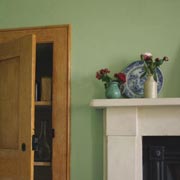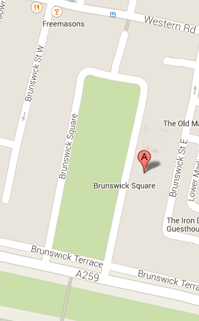17 April 1831
My Dear Martha,
Fie on you for thinking that I would so stoop as to confide in my dressmaker or milliner! I remarked merely that they are privy to many secrets to which they should not be, but be sure they are not privy to mine, such as they are. It is almost twelve months since I had cause to call either Mrs Burton or Mrs Blue to see me, for I have had neither the excuse nor the means for new dresses or hats. I nearly swooned with delight when I read of your three new gowns. I might well have swooned with jealousy but how could I envy you, my dear Martha, my dearest friend and a body most generous in spirit? For certain you suffer mightily for your wealth: we must own that your life is hard when Mr Hankey is at home and even harder when you must bear witness to the effect his company is having on your son. I am so very glad that Martha has proved herself above such behaviour.
My poor dear Harriet is quite beside herself with the behaviour of her daughters, Maria and Sarah. Maria cannot be content with any of the possible suitors her poor dear Mama has in mind for her. This one is too tall and that one is too small. One, she declares, would care more for his dogs than a wife and another is so unkempt in his appearance she cannot believe his fortune is as is rumoured. Both she and Martha are both so choosy that I fear they may never find a husband at all. Young Sarah has proven so interested in the army officers in Exeter that she is to be sent to stay with Courtney’s aunt, Mrs Montmorency, in Hampshire. Mr Montmorency has a living well away from the temptations of town life and young Sarah will fast learn the virtues of a quiet life and good works as a gentlewoman. Girls are such a trouble, are they not? Harriet writes that even young Susanna has been found gazing foolishly into the eyes of Mr Bird, the music master. I own his eyes are quite fine, but I am allowed to notice such matters, for I am in no danger of falling in love with a music master or any other such man.
My recollection of Lucinda Prescott is not favourable and I have no doubt her daughter has not improved the stock.
My dear son William has written from Portsea, where he is now berthed as he calls it. He writes of the gay life he is enjoying and sends me vivid descriptions of his friends and their pursuits. How I wish he would settle to matrimony for I fear he is becoming quite spoiled for it.
I am quite taken with the idea of a move to Hove. To move in company again would give me the greatest pleasure: and such gay company, too. My dear Martha, to be near you would please me beyond description for we have such an understanding and sympathy. Then you might always lean on me for support when your troubles beset you. We shall look for a small place I might rent when I next visit.
Now, Martha dearest, I must bid you “adieu”. Do write on the very instant you return from your tea with Lady Ponsonby for I am on fire to learn about her house, her conversation and every last detail. How very exciting.
With affection,
Your friend,
Elinor Vicary


